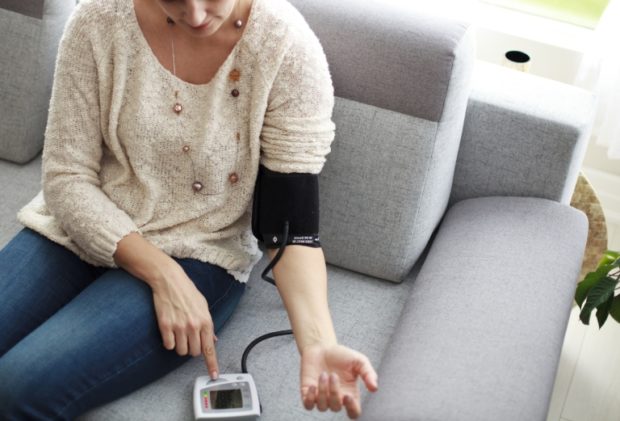How accurate is your blood pressure monitor?

Image: vitapix/IStock.com via AFP Relaxnews
New Australian research has found that most home blood pressure devices sold in the country have not been validated to ensure that they are accurate, which could potentially lead to misdiagnoses and patients receiving the wrong treatment.
Led by researchers at the Menzies Institute for Medical Research at the University of Tasmania, the new study looked at 972 models of home blood pressure monitoring devices available online in Australia, with more than 90 percent of the products included coming from large multinational businesses like Amazon and eBay.
The researchers checked each of the products to see if they had been validated before going on sale, which means they had been put through rigorous testing to ensure they measure accurate blood pressure readings.
The findings, published today in Hypertension, an American Heart Association journal, showed that just 6% of the 972 models included in the study had been validated.
Moreover, just over 18% of the upper-arm cuff blood pressure devices had been validated, and none of the wristband models had been validated, which accounted for more than half of the blood pressure monitors on the market.
Perhaps unsurprisingly, the team also found that non-validated devices were cheaper than those that had been tested.
While the researchers say that the study may be limited by reviewing only devices purchased in Australia, many of these monitors are also available to buy around the world, meaning some of the home blood pressure devices available worldwide may also not be validated.
“People around the world monitor their blood pressure using home devices to help to effectively manage hypertension and to help determine their risk for heart attacks or strokes,” said lead researcher James E. Sharman, PhD. “If the devices haven’t been properly validated for accuracy, treatment decisions could be based on incorrect information. We found non-validated devices dominate the Australian marketplace, which is a major barrier to accurate blood pressure monitoring and cardiovascular risk management.”
“Inaccurate blood pressure measuring devices could have a major implication for public health. If blood pressure is incorrectly overestimated it could lead to unnecessary prescriptions or higher doses than needed of blood pressure-lowering medications, which are usually prescribed for life,” Sharman explained.
“Medications are costly, have potential side effects and patients incorrectly labeled with high blood pressure could suffer unnecessarily. When blood pressure is incorrectly underestimated, people might remain at increased risk for a heart attack or stroke that could otherwise be avoided with the appropriate medication and dose, and/or lifestyle changes.”
“International policies need to be strengthened to ensure that home use medical devices are rigorously tested for accuracy before being cleared for sale by regulatory authorities,” Sharman added. “Currently, manufacturers of blood pressure devices conduct their own accuracy testing, an honor system with potential real-life consequences for patients.” JB
RELATED STORIES:
Exercise could boost mental well-being in menopausal women
Having larger thighs linked to lower blood pressure in obese or overweight individuals